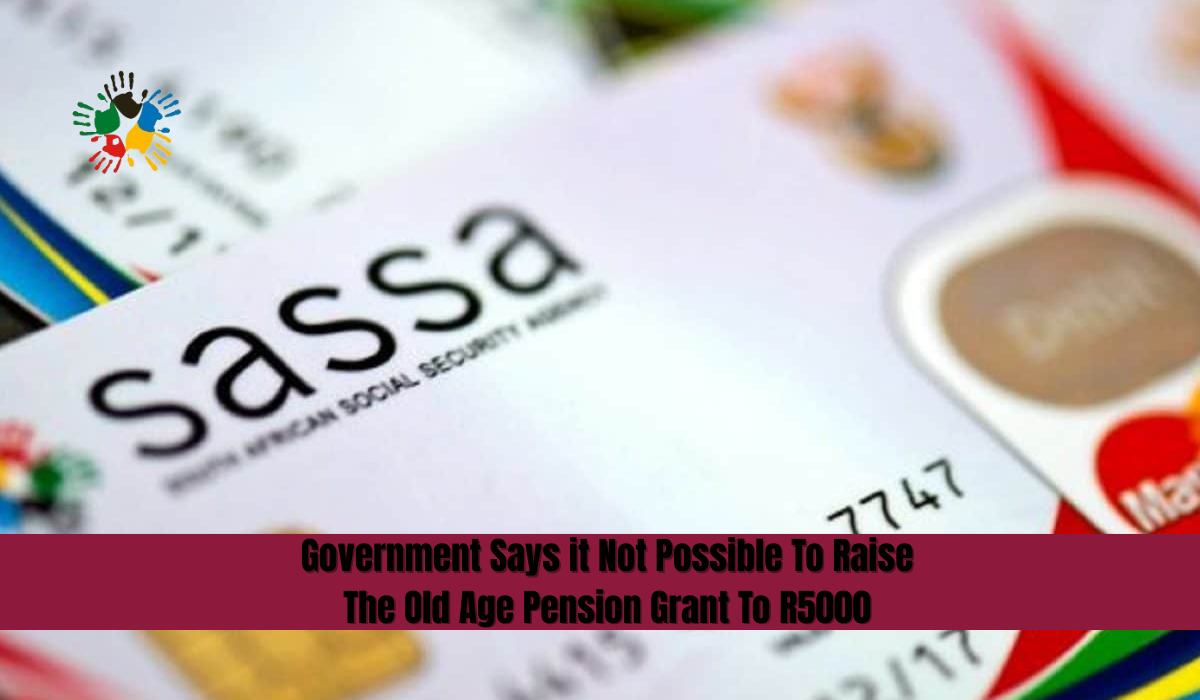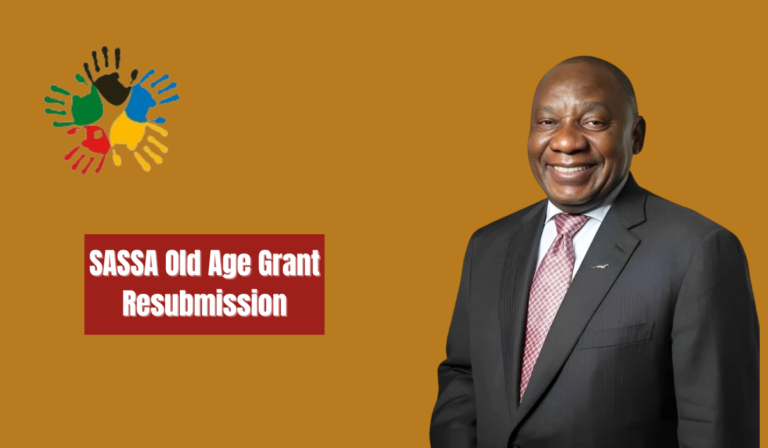Government Says it Not Possible To Raise The Old Age Pension Grant To R5000

Government Says it Not Possible To Raise The Old Age Pension Grant To R5000. The South African government has firmly addressed the increasing public demand for a raise in the old age pension grant to R5,000 per month. In a recent parliamentary session, officials from the Department of Social Development (DSD) clarified that while they recognize the financial hardships faced by elderly citizens, the government cannot accommodate such a significant increment due to current budget limitations.
The Economic Reality Behind Grant Increases
South Africa’s social grant system is one of the most comprehensive in Africa, supporting approximately 19 million citizens through various programs administered by the South African Social Security Agency (SASSA). Among these, around 4.1 million recipients are older persons who depend on the old age pension grant as a primary source of income.
Currently, the grant provides:
- R2,310 per month for pensioners under 75 years old.
- R2,330 per month for pensioners over 75.
These figures will see a modest increase in October 2025 to R2,320 and R2,340 respectively. However, even with this adjustment, many elderly citizens argue that the amount is far from sufficient to sustain a basic standard of living amid rising costs of healthcare, food, housing, and transportation.
Budgetary Constraints
In a session with the Parliamentary Portfolio Committee on Social Development, Dr. Maureen Mogotsi, the acting Chief Director at the Department of Social Development, delivered a sobering analysis. She acknowledged the genuine need for increased support but emphasized the impracticality of raising the old age pension grant to R5,000 per month.
“It makes it difficult to argue for an increase of this particular grant because it is already the highest among all grants,” said Dr. Mogotsi.
She explained that the grant currently surpasses the Upper Bound Poverty Line, whereas other critical grants, like the Child Support Grant, fall below the Food Poverty Line, despite child poverty levels being significantly higher.
Financial Implications
To understand the scale of such a proposal, here’s a financial breakdown:
| Grant Proposal | Number of Beneficiaries | Cost per Beneficiary (Monthly) | Annual Cost |
|---|---|---|---|
| Current Grant | 4.1 million | R2,310 – R2,330 | ~R117.3 billion |
| Proposed Increase | 4.1 million | R5,000 | ~R246 billion |
As per the 2025/2026 Budget Review, R117.3 billion has been allocated specifically for the old age grant, and R284.7 billion for all social grants combined. Raising the grant to R5,000 would more than double the current expenditure on this specific grant, which would place immense pressure on the National Treasury.
Dr. Mogotsi further noted that unless South Africa sees a massive fiscal shift or a surge in revenue, such as a substantial increase in tax collections or a reallocation of spending, the proposed increase is simply not feasible.
SRD Grants and Other Vulnerable Groups
The discussion also touched on the Social Relief of Distress (SRD) grant, which offers a lifeline to millions of unemployed citizens but remains far below the poverty threshold. This raises a key ethical dilemma for policymakers: how should limited funds be distributed among equally vulnerable populations?
“Even those receiving the SRD grants are below the poverty line. Who should we consider first?” Mogotsi asked. “It’s not possible for us to increase the pensioners’ grants [to that extent].”
Public Pressure vs Economic Realities
There has been a groundswell of public support for increasing the old age pension grant, with many advocacy groups arguing that the elderly are particularly vulnerable to inflation and financial instability. Their medical and nutritional needs are higher, and most do not have alternative income sources.
Despite this, government officials remain cautious. The National Treasury is grappling with numerous fiscal challenges, including:
- Managing national debt.
- Funding education and healthcare.
- Investing in infrastructure.
- Supporting youth employment initiatives.
Adding an additional R128 billion annually to meet a R5,000 pension target would require severe budgetary trade-offs, potentially undermining other critical services.
A Call for Sustainable Social Support
While the government stance may disappoint many, it reflects the broader challenge of balancing social equity with fiscal responsibility. Instead of a sharp increase, some policy analysts suggest a phased approach or alternative interventions, such as:
- Targeted subsidies on essential goods for the elderly.
- Medical vouchers for pensioners.
- Tax exemptions on pension-related income.
- Enhanced community support services for isolated elderly citizens.
Such complementary programs could help reduce the cost of living for pensioners without placing overwhelming strain on the national budget.
FAQs About Old Age Pension Grant
Why can’t the South African government raise the old age pension grant to R5,000?
The government estimates that increasing the old age pension grant to R5,000 per month for 4.1 million beneficiaries would cost approximately R246 billion annually. Due to current budgetary constraints, such a significant increase is not financially feasible. The grant is already the highest among all social support programs and exceeds the Upper Bound Poverty Line.
What is the current amount of the SASSA old age pension grant?
As of now, pensioners under 75 years receive R2,310, and those over 75 receive R2,330. These amounts are scheduled to increase slightly in October 2025 to R2,320 and R2,340, respectively.
Are there any alternatives being considered to support elderly citizens?
While a direct increase to R5,000 is off the table, the government may explore other options such as subsidies, vouchers, or tax relief for the elderly. Enhancing community-based services and ensuring access to affordable healthcare are also on the discussion table.
Conclusion
The call to increase the old age pension grant to R5,000 reflects a genuine concern for the welfare of South Africa’s elderly. However, given the country’s economic context and the financial load such a change would impose, the Department of Social Development and National Treasury have determined that it is currently not a viable option.






